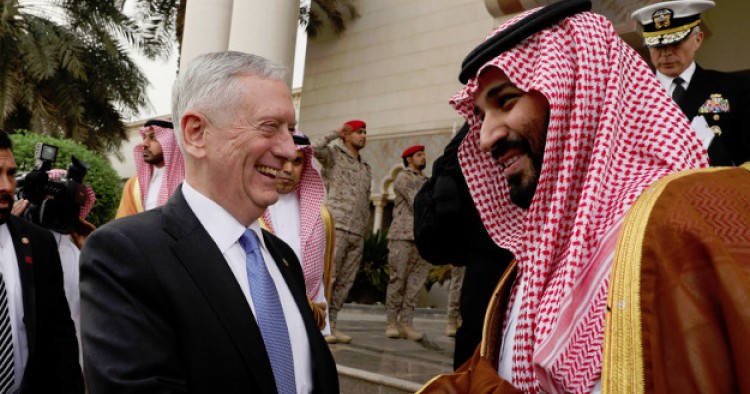U.S. Defense Secretary Jim Mattis’ remarks about Iran’s destabilizing influence in the Middle East prompted an angry reaction from Tehran. The Iranian defense minister rejected the allegations by the top U.S. defense official, and accused Washington of fueling instability and supporting terrorists in the region. “He (Mattis) and other so-called strategist leaders of the US should be aware that the era of bullying, blame games and interference from a self-righteous position is over…,” Brigadier General Hossein Dehghan said on Wednesday. Iranian media outlets affiliated with the Islamic Revolution Guards Corps (I.R.G.C.) also slammed Mattis’ comments and criticized Washington for helping Saudi Arabia in the Yemeni conflict. “While US officials keep making allegations against Iran, they opt to close their eyes to the plight of Yemen’s defenseless people who have been under massive attacks by a coalition led by the Saudi regime for more than two years,” wrote Tasnim News Agency, an I.R.G.C. mouthpiece.
Comment: Speaking to reporters in the Saudi capital of Riyadh on Wednesday, Mattis said Iran’s subversive activities have to be countered in order to ensure security and stability in the region. "Everywhere you look if there is trouble in the region, you find Iran," he said. "We will have to overcome Iran's efforts to destabilize yet another country and create another militia in their image of Lebanese Hezbollah, but the bottom line is we are on the right path for it," he added, stressing support for the Saudi-led coalition supporting the Yemeni government.
Mattis reportedly also discussed Yemen with Saudi leaders, including King Salman and Deputy Crown Prince and Minister of Defense Mohammed bin Salman in Riyadh. The Trump administration is considering options that could increase U.S. military involvement in Yemen. Such support would include enhanced intelligence, reconnaissance and surveillance operations as well as logistical support for Saudi and Emirate troops battling Iran-supported Houthi rebels. American defense officials however have noted that the primary focus of the U.S. military will still remain al Qaeda in the Arabian Peninsula (AQAP). Speaking in Riyadh, Mattis also called for a U.N.-brokered political solution to end the Yemeni civil war.
The Middle East Institute (MEI) is an independent, non-partisan, non-for-profit, educational organization. It does not engage in advocacy and its scholars’ opinions are their own. MEI welcomes financial donations, but retains sole editorial control over its work and its publications reflect only the authors’ views. For a listing of MEI donors, please click here.












